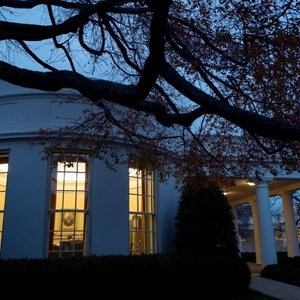US biodiesel leadership sends RFS letter to President Trump

November 16, 2017
BY Ron Kotrba
Executive leaders of the National Biodiesel Board have sent a letter to U.S. President Donald J. Trump on the 2018-’19 final rule for the Renewable Fuel Standard, which the White House Office of Management and Budget is currently reviewing. This is the first time that the organization’s governing board has sent a letter to the president on the RFS.
The letter reiterates the importance of biodiesel and the RFS to the rural economy, creating tens of thousands of jobs in economically challenged areas, and reaffirms NBB’s ask volumes of 4.75 billion ethanol-equivalent gallons for advanced biofuels in 2018 and 2.5 billion gallons for biomass-based diesel in 2019. Furthermore, the governing board provides data to counter misinformation and highlights the hypocrisy of refiners’ recent statements on compliance costs of the RFS.
Advertisement
“[It is] equally important to understand is that these base numbers contained in EPA’s original, July proposal—4.24 billion gallons for advanced biofuels and 2.1 billion gallons for biomass-based diesel—are themselves so low that, if finalized, they will halt the growth of the biomass-based diesel industry,” the letter states. “The 4.24- billion-gallon number is a reduction from the previous year’s 4.28 billion gallons, which sends a starkly negative signal to the industry as a whole.
“Similarly, the 2.1-billion-gallon volume for biomass-based diesel is a static number—the same as the previous year—again sending the wrong signal to an industry poised for robust, sustainable growth. The RFS program is fulfilled by both domestic and imported biodiesel, but the domestic industry alone can generate 2.6 billion gallons of biomass-based diesel right now. In other words, even if you excluded all imports, domestic producers alone are immediately ready to generate substantially more than the 2.1 billion-gallon volume in EPA’s July proposal.”
Advertisement
NBB’s higher ask volumes “are the numbers that farmers and related industries will be looking for in the final rule that is expected to be released later this month,” the executive leaders state in the letter to the president. “We also understand that some refiners are continuing to complain loudly about the RFS, about RIN prices and about what they see as the adverse impacts on their businesses. Yet strong Q3 refiner earnings reports seem to directly contradict those concerns. For example, PBF Energy, whose executives had earlier made strong statements about the potential negative impact of RIN prices on the company’s earnings, just reported Q3 revenue of $5.5 billion—a whopping 22 percent increase compared to the same period in 2016. The executives’ prior statements were clearly overstated. It is also important to know that many of the refinery owners who are begging for Congress to provide relief by changing or killing the RFS were fully aware of this law when they purchased their companies, and when the RFS was completely factored into their purchase prices. It is not as if the 10-year-old RFS law constitutes some big surprise. Other companies in this space have invested in blending and distribution infrastructure or employed other compliance strategies to minimize their costs.”
The final 2018-’19 RFS rule is due to be released later this month.
Related Stories
Reps. Mike Flood, R-Neb., and Troy A. Carter, Sr., D-La., on July 21 reintroduced the SAF Information Act. The bill directs the U.S. EIA to more explicitly include SAF data in its weekly and monthly reports.
The U.S Department of Energy Bioenergy Technologies Office, in partnership with the Algae Foundation and NREL, on July 21 announced the grand champion and top four winning teams of the 2023 - 2025 U.S. DOE AlgaePrize Competition.
The European Commission on July 18 announced its investigation into biodiesel imports from China is now complete and did not confirm the existence of fraud. The commission will take action, however, to address some systemic weaknesses it identified.
On July 18, U.S. EPA announced a reduction in force (RIF) as the agency continues its comprehensive restructuring efforts. With organizational improvements, EPA is delivering $748.8 million in savings.
The U.S EPA on July 17 released data showing more than 1.9 billion RINs were generated under the RFS during June, down 11% when compared to the same month of last year. Total RIN generation for the first half of 2025 reached 11.17 billion.
Upcoming Events










